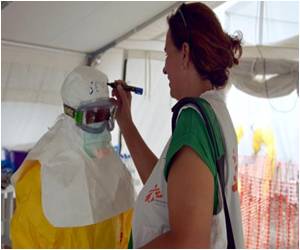The first Italian to contract Ebola, a doctor, arrived in Rome Tuesday from Sierra Leone for specialist treatment in an infectious diseases hospital.

The Italian health ministry was expected to hold a press conference later Tuesday to give details of his condition.
The doctor, whose first name was reported to be Fabrizio, was working for the charity Emergency at a clinic for Ebola victims when he contracted the disease, which has killed nearly 5,500 people in its latest outbreak in west Africa.
He spoke to his daughters by telephone before landing in Rome, telling them "he was fine, not afraid, and sure he will pull through," Italian media reported his wife as saying.
He had travelled to Sierra Leone on October 18 and had been due to return to Italy on Friday, according to his wife, who told the Corriere della Sera daily that "he almost made it through" without catching the disease.
The doctor had been working with 25 other Italians -- doctors, nurses and logistics staff -- living together in three houses with small rooms and shared common spaces.
Advertisement
"The patient will not have any contact with doctors, or nurses. And especially not with the population. The Spallanzani hospital is a centre of excellence on a European level," she said in an interview with Il Messaggero daily.
Advertisement
The infected doctor "was assisted from the start of the very first symptoms and we follow strict security procedures. We know well, from experience, that time is of the essence. And in this case the assistance was immediate," she said.
A Ugandan doctor working for Emergency fell ill with Ebola at the start of October and was transferred to Frankfurt for care, where he recovered, according to Italian media reports.
Strada said the work the medical team was carrying out was "extremely tiring, both physically and emotionally."
"Working in the red zone... means being able to work for at most an hour, before being replaced. But patients in critical conditions need constant care and it's not easy to leave them. Sometimes we've had to almost pull doctors away and force them to leave," she said.
Source-AFP












